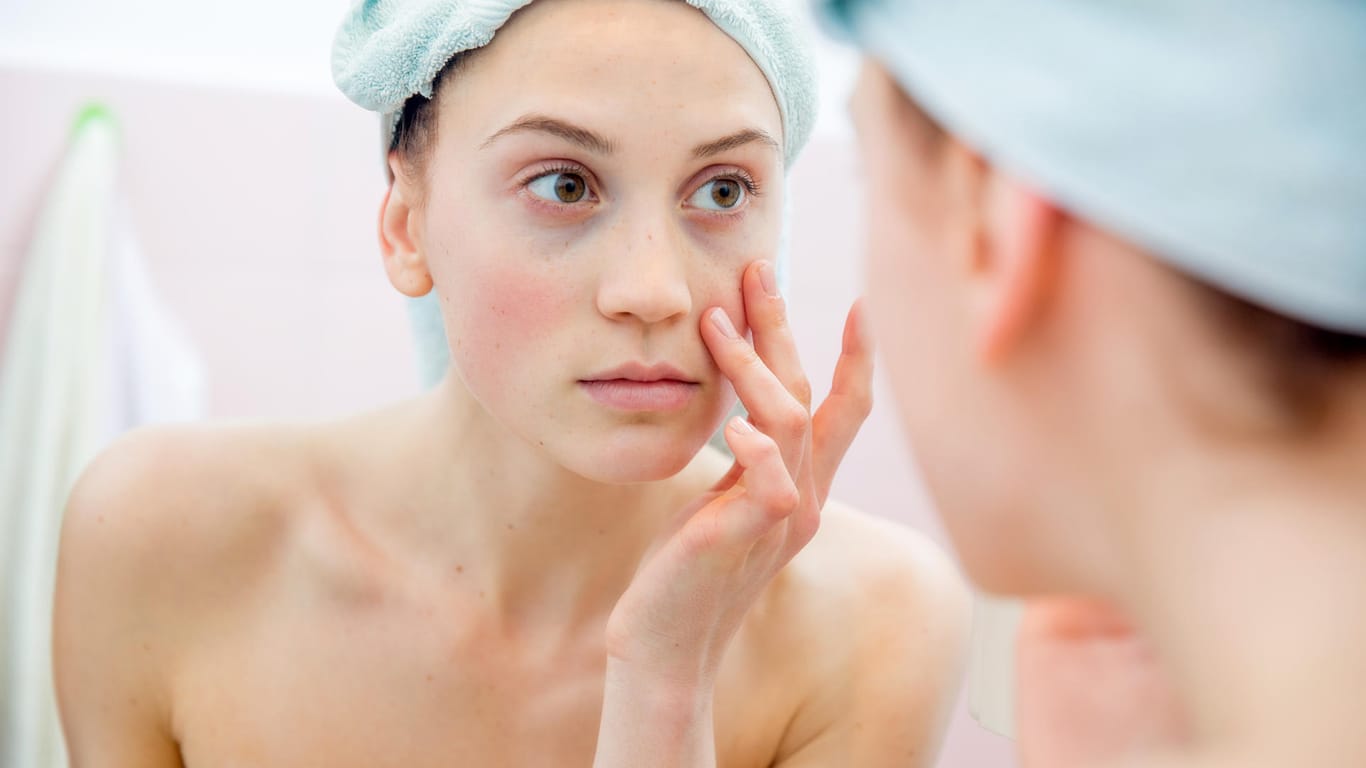Iron deficiency: Typical symptoms also put a strain on the psyche
The direct result of a severe iron deficiency is what is known as anemia (anemia). On the one hand, this leads to physical complaints such as headaches , rapid heartbeat or the so-called restless leg syndrome , which is manifested by restlessness in the legs.
However, iron deficiency anemia can also have an impact on the psyche and impair one’s overall well-being. The following symptoms often occur:
- Tiredness, weakness and exhaustion
- Difficulty concentrating and problems thinking
- Irritability and nervousness
A rarer symptom is the need to eat things that are not actually edible or at least not considered food, for example earth, lime or ice cubes.
Iron deficiency: symptoms in the mouth and tongue
Iron deficiency can lead to the oral mucosa no longer receiving sufficient blood supply. It then appears paler. Over time, the mucosal tissue can atrophy and deteriorate due to the deficiency. This results in symptoms that doctors refer to as Plummer-Vinson syndrome.
Typical signs are:
- torn corners of the mouth (mouth corner rhagades)
- burning sensation on the tongue (“burning tongue”)
- Pain when swallowing
- painful inflammations in the mouth ( aphthous ulcers ) that keep recurring
Iron deficiency: symptoms on skin and eyes
If an iron deficiency results in anemia , the skin has poor blood circulation. This can make it dry, itchy and appear pale.
However, paleness is not always a symptom of iron deficiency. For many people, even if they do not have an iron deficiency, their skin tone is already pale or yellowish (not pink) because their blood vessels are located quite deep beneath the surface of the skin.
Conversely, there are people who do not appear pale despite a severe iron deficiency. For example, because they have a dark complexion or the blood vessels in their facial skin are abnormally dilated (for example due to rosacea ).
Does iron deficiency also show up in the eyes?
Iron deficiency usually does not affect the eyeball or vision. If anemia has already occurred due to iron deficiency, this may show up on the inside of the eyelids. This then – like the oral mucosa – has less blood flow and can therefore appear paler than usual.
Iron deficiency: hair loss and fingernail symptoms
A severe iron deficiency often causes changes in the fingernails. Characteristic symptoms are:
- brittle fingernails
- Grooves in the nails
- round (spoon-shaped) hollows in the nails (“hollow nails”)
In addition, severe iron deficiency can lead to hair loss . Doctors speak of hair loss when someone loses more than 100 hairs per day. There are different types of hair loss.
Iron deficiency causes diffuse hair loss. This means: The entire hairy area of the head is affected. So there are no bald spots, but the hair loss is evenly distributed.
Diffuse hair loss can also have other causes in addition to iron deficiency, for example stress or metabolic diseases such as diabetes.
The good news: Diffuse hair loss is usually not permanent because the hair roots remain intact – unlike scarring hair loss, in which the hair roots perish. Anyone who experiences hair loss due to an iron deficiency can usually assume that their hair will grow back once the deficiency is corrected.
Does iron deficiency also lead to muscle symptoms?
There can be many reasons for muscle pain and symptoms in individual muscles or muscle groups: overload, infections, injuries or even rheumatic diseases. An iron deficiency, on the other hand, is usually not the cause.
However, a severe iron deficiency impairs physical performance. The deficiency makes it more difficult for the body to supply all of its organs and tissues with oxygen. Without oxygen, however, they would die. Therefore, when there is anemia, the heart pumps faster to maintain the oxygen supply as best as possible.
If the person affected by the deficiency then exerts themselves additionally, for example when doing sports , the cardiovascular system is overloaded. This can manifest itself in, among other things, a racing heart and shortness of breath .
Does iron deficiency have consequences for weight?
An iron deficiency is not reflected in the scales. There are articles on the Internet that say that iron deficiency makes you fat. However, such claims usually hide financial interests, for example from companies that sell iron supplements. To date, there is no scientific evidence that iron deficiency causes weight gain.
An indirect connection is conceivable: If the deficiency has already led to anemia, physical performance decreases and those affected often suffer from exhaustion and tiredness. If these symptoms cause them to exercise less and/or eat more energy-rich foods, they will gain weight.
But there is no scientific evidence for this indirect connection either. This means that it is not known whether people with iron deficiency anemia actually eat more or exercise less and therefore gain weight.
Iron deficiency: symptoms in women
An iron deficiency causes the same symptoms in women as in men. However, women have certain early warning signs – symptoms that indicate that there is an increased risk of iron deficiency: they lose a lot of blood (more than 80 milliliters) during their menstruation, or their menstruation lasts longer than a week.

